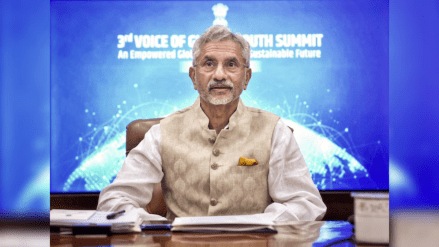As India’s External Affairs Minister, S. Jaishankar, prepares to visit Riyadh for the First India-Gulf Cooperation Council (GCC) Foreign Ministers’ Meeting on September 8-9, 2024, the growing ties between India and the GCC come into sharp focus. This landmark meeting presents an opportunity to further institutionalize cooperation across political, trade, energy, and security domains. However, these deepening relations face challenges amidst the ongoing turmoil in West Asia, with the Hamas-Israel conflict and other geopolitical tensions complicating India’s engagement in the region.
Economic Ties with the GCC member countries
The GCC has emerged as one of India’s most significant trading partners. In FY 2022-23, the region accounted for 15.8% of India’s total trade, surpassing the European Union. The United Arab Emirates (UAE) and Saudi Arabia, India’s third and fourth-largest trading partners respectively, are at the heart of this relationship. The UAE has already invested $15.3 billion in India, while Saudi Arabia and Qatar have contributed $3.2 billion and $1.5 billion, respectively.
While these investments signal a robust economic partnership, the pursuit of a Free Trade Agreement (FTA) between India and the GCC, first proposed in 2022, remains unfulfilled. Differences among GCC member states and bureaucratic delays have prevented progress. Nonetheless, such an agreement would be a crucial step in elevating bilateral trade and investment, particularly as India seeks to position itself as a manufacturing and investment hub amid shifting global supply chains.
The Importance of Energy Cooperation
Energy has historically been the cornerstone of India-GCC relations, with the Gulf region fulfilling over half of India’s crude oil demand. Despite India’s brief shift towards discounted Russian oil following the 2022 Ukraine invasion, the country’s reliance on Gulf oil is expected to rebound in 2023-24. Saudi Arabia, the UAE, and Qatar remain crucial suppliers of both crude oil and natural gas to India, with a recent $78 billion deal extending India’s gas imports from Qatar by 20 years, underscoring the long-term importance of Gulf energy supplies.
India’s growing aspirations in global energy governance, such as its bid to join the International Energy Agency (IEA), further illustrate its desire to be a significant player in global energy markets. However, the ongoing Hamas-Israel war threatens energy stability, particularly in the Red Sea and Gulf regions, where shipping attacks could disrupt crucial energy trade routes.
Strategic Convergence and Security Cooperation
In recent years, the India-GCC relationship has expanded beyond energy and trade to include political and security dimensions. India’s strategic partnerships with Saudi Arabia, the UAE, and Qatar are becoming increasingly vital. Personal relationships between Indian Prime Minister Narendra Modi and Gulf leaders have fostered trust, paving the way for stronger cooperation in areas like counterterrorism, maritime security, and defence.
India’s regional security objectives are closely tied to safeguarding sea lines of communication in the Gulf of Aden and the Red Sea. The Indian Navy’s year-round presence in the region, as part of its ‘mission-based deployments,’ highlights New Delhi’s commitment to ensuring maritime security in the Gulf and beyond. FinancialExpress.com has reported previously that defence ties with the GCC countries have also grown. There are bilateral naval exercises initiated with the UAE, Qatar, Bahrain, and Saudi Arabia in recent years. The UAE has emerged as India’s most important regional defence partner, with trilateral military cooperation between India, the UAE, and France symbolizing a deeper level of trust.
However, the intensification of the Hamas-Israel war presents a major challenge to India’s security interests in the region. The conflict has already led to shipping attacks in the Red Sea, putting India’s energy security at risk. While India continues to balance its relations with Israel, Iran, and the Gulf states, the complexities of West Asian politics are becoming increasingly difficult to navigate.
Challenges
The most immediate is the ongoing conflict in West Asia, which threatens to disrupt regional stability. India, while calling for restraint, remains reluctant to take an active role in the geopolitics of the region, preferring to maintain a balanced approach between its various partners. Yet, should the conflict escalate, India’s ability to navigate these complexities could be severely tested.
Another challenge is the delayed FTA between India and the GCC. The deal, which has the potential to significantly boost trade, has been held up due to changes in the GCC’s trade leadership and differences among its member states. Finalizing this agreement will require deft diplomacy from both sides to satisfy the economic and political interests of all parties involved.
Moreover, India’s efforts to strengthen regional cooperation through initiatives like the India–Middle East–Europe Economic Corridor (IMEC) and the I2U2 grouping (India, Israel, the UAE, and the U.S.) have been hampered by the ongoing crisis. The Hamas-Israel war has postponed key meetings and delayed progress on these initiatives. For India, ensuring that these economic corridors remain viable amid the conflict will be a significant diplomatic challenge.
